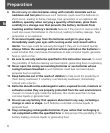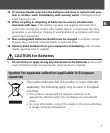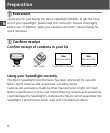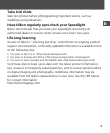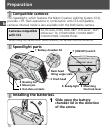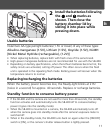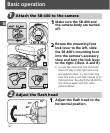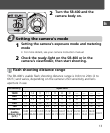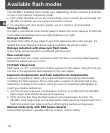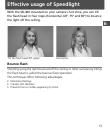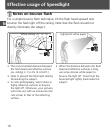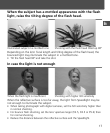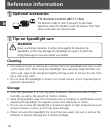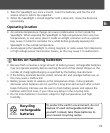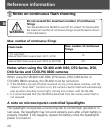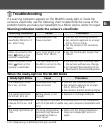
14
En
Available flash modes
The SB-400's available flash modes vary, depending on the cameras and lenses
in use or the camera's exposure mode.
• Each mode should be set on the camera body, since it cannot be set through the
SB-400. For details, see you camera instruction manual.
• For shooting with slow shutter speeds, use of a tripod is recommended.
Slow-sync flash
The flash is controlled at a slow shutter speed to obtain the correct exposure for both the
main subject and background in low-light situations or at night.
Red-eye reduction
To prevent the center of your subject's eyes from appearing red in color pictures, the
SB-400 fires three flashes at reduced output just before the picture is taken.
Red-eye reduction with slow-sync flash mode
In this mode, red-eye reduction is combined with slow-sync.
Rear-curtain sync
Rear-curtain flash sync creates a picture in which the blur or a moving subject appears
behind the subject and not in front.
FV (Flash Value) Lock
Flash Value, or "FV", is the amount of flash exposure for the subject. Using FV Lock you
can lock in the appropriate flash exposure for the main subject.
Exposure compensation and flash output level compensation
Exposure compensation allows you to take well-balanced pictures by intentionally
modifying the flash exposure. This is useful when a subject of extremely high or low
reflectivity is included in the scene or when you want to create flash photographs to
match your creative preferences.
• Use the camera's exposure compensation function to modify both the SB-400's
flash output level and the background exposure.
• With cameras that have the flash output level compensation function, the
SB-400's flash output level can be adjusted to make exposure compensation for a
flash illuminated main subject without affecting the background exposure.
Manual mode (only with D40-Series camera)
Manual flash operation is possible with the camera's custom setting.



